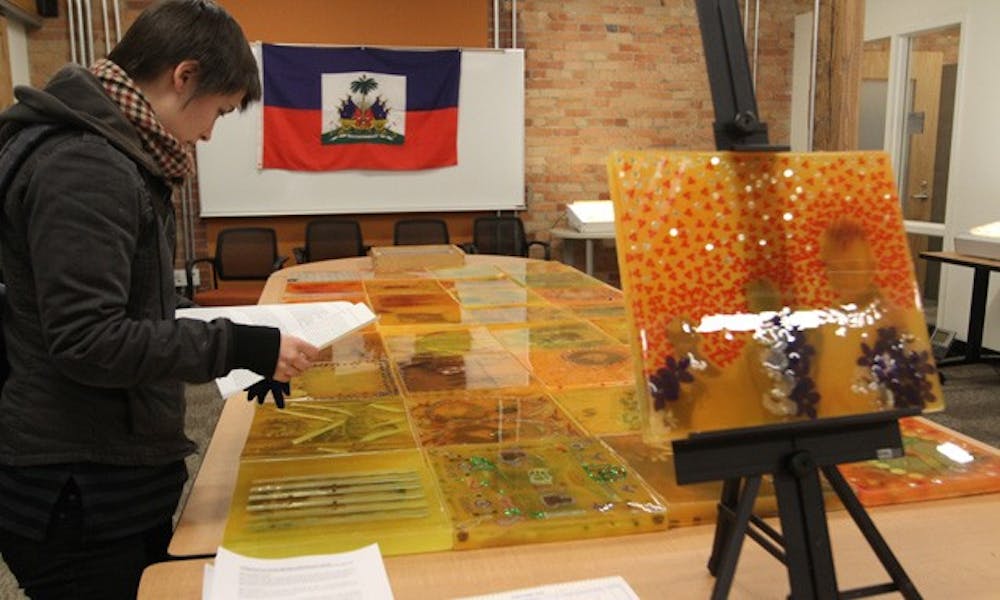As some Duke students have already learned, labs have a place outside of the sciences.
The John Hope Franklin Humanities Institute’s humanities laboratories are intended to facilitate research across departments and provide new opportunities for undergraduates, graduate students and faculty. FHI launched the first of the labs, the Haiti Lab, last Fall, and two others— BorderWorks(s) and GreaterThanGames—are expected to launch in Fall 2011.
Located in the Smith Warehouse, the labs allow undergraduates to participate in research to help solve practical problems. FHI Director Ian Baucom said when he took charge of the institute in July 2009, fully involving undergraduates was a top priority.
Twenty-seven undergraduates worked through a group independent study on four major projects last semester, Deborah Jenson, co-director of the Haiti Lab, wrote in an e-mail Feb. 8.
Senior Andrew Walker, a history and French studies major who worked in the lab last semester, said that students have numerous options to pursue research in the labs. Walker began to work in the lab after taking courses with the co-directors of the lab.
“Students in some of the [Haiti Lab’s] courses did some really incredible work,” he said. “[This included] gauging Haiti’s position on the international gender inequality index and tracking the flow of reconstruction funds [after the earthquake] from the U.S. to Haiti.”
The effort combines empirical research and creativity not always found in science labs, Jenson said.
“The Haiti Lab is special because there is always something creative going on,” she said. “Whether it was our ‘Haiti: History Embedded in Amber’ collaborative art project or the [singing] last week from the rich voice of Erol Josue.”
Lesley Shannon Curtis, a graduate student and a teaching assistant at the Haiti Lab, said she believes the humanities labs are important not only because of their emphasis on involving students, but also because of the specific, practical problems they enable researchers to solve. This semester, for example, the lab is doing considerable work on the history of Cholera epidemics in the Caribbean, she said.
“Unfortunately, a lot of people, especially in this time of economic crisis, think that studying the humanities is less important than studying other subjects,” she wrote in an e-mail Sunday. “But when we have spaces like the Haiti Lab where students and scholars can combine their research and critical analytical skills in ways that directly affect the real world, we can show how vital it is to study the humanities.”
The opening of two additional labs will provide additional opportunities for research. Baucom said that the labs will host an information session after spring break to attract more students.
Borderwork(s) will study the ways that walls and borders—both physical ones like those in Israel and Palestine and conceptual ones like the firewalls of cyberspace—affect human interaction. GreaterThanGames aims to build a game platform that will be adaptable over a range of networked devices—including desktop computers as well as iPhones and iPads—and bring together virtual and real world components.
Laurent Dubois, the other co-director of the Haiti Lab, said he is especially excited about the labs because of their interdisciplinary nature.
“The Haiti Lab, and those that will follow it starting next Fall, are simply unique in the humanities context because they are really a space for sustained collaborative work across disciplines as well as between different constituencies of a kind I haven’t really seen elsewhere,” he said.
Get The Chronicle straight to your inbox
Signup for our weekly newsletter. Cancel at any time.

